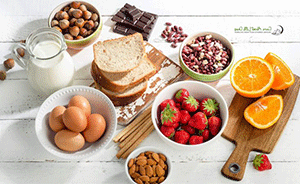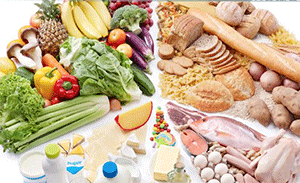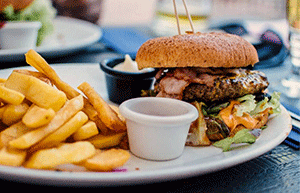Breastfeeding provides essential nutrients to infants, and a mother's diet can significantly influence her baby’s comfort and health. Colic, is associated with excessive crying and fussiness in otherwise healthy infants, can be distressing for both baby and parents. While the exact cause of colic is still unknown, certain dietary choices by breastfeeding mothers may help reduce the likelihood of colicky symptoms. Here are some dietary considerations to help avoid colic.
Other Topics You Might Like
Helpful Products You Might Like

Little Remedies Gripe Water for Newborns

Baby Heated Tummy Wrap for Newborns
MYLICON Infants Gas Relief Drops for Infants and Babies
"(Paid Links)" 
Focus on Whole Foods
Opt for foods that are minimally processed, such as fruits, vegetables, whole grains, pea protein lean meats, or healthy fats, as this will provide many benefits, including easy digestion and fast digestion. It would be better to go for a combination of colors, which fruits and vegetables offer, as they contain antioxidants and vitamins ideal for maintaining one’s health and the baby.

Keep Drinking Water and Or Other Fluids.
Water is essential related to both one’s health and the ability to produce milk. There is a crucial focus placed on the drinking of fluids with regard to breastfeeding mothers during the entire course of the day. Other fluids such as herbal teas which are known to be made from chamomile or ginger can be helpful and may assist in digestion. Caffeine and sugar-laden drinks are to be avoided, of course, as they can disturb the infant’s stomach or digestive system.
Limit Common Allergens
Some babies might have some issues with some ingredients that are ingested during breastfeeding due to some nature ingredients that are most commonly encountered: milk, some types of soy, nuts, wheat, eggs, and varieties of shellfish. If there recur symptoms of colic, consider diet removal of these alien materials, but in turn, to pinpoint the specific one. To avoid making dietary changes that, in turn, may affect one’s health, consult or, even worse, one’s infant, in most concerning cases, a health care professional before embarking on a new food direction entirely.
Select Easily Digestible Foods

Digesting some foods may be easier than others. Consider eating foods like bananas, rice, applesauce, and toast when your baby is extremely irritable. These foods can help sustain nutritional adequacy on the diet yet avoid a lot of digestive distress.
Use Probiotics
Probiotics are beneficial microorganisms that help maintain the health of the intestines. According to a few studies, probiotic-containing foods, such as yogurt, kefir, and fermented foods, may assist in resolving digestive disorders. Probiotics may also be consumed as dietary supplements, but a healthcare professional must be consulted prior to any new supplementation program.
Evaluate Fiber Consumption
Fiber is good for digestion, but when increased suddenly, it can also cause gas and bloating to build up, which might aggravate symptoms of colic. Aim to increase the intake of fiber slowly with foods such as beans, lentils, whole grains, and leafy vegetables, and maintain proper fluid intake necessary for digestion.
Limit Spicy Foods
Many people eat spicy food all over the world, and while this is true, in some babies, it could give rise to gas and general discomfort. This would suggest that mothers who use a lot of spices may want to cut down to see how the baby responds.

Emphasize Omega-3 Fatty Acids
Foods rich in omega-3 fatty acids, such as fish (like salmon and sardines), flaxseeds, and walnuts, benefit maternal health and infant brain development. These healthy fats also have anti-inflammatory properties, which help reduce discomfort.
